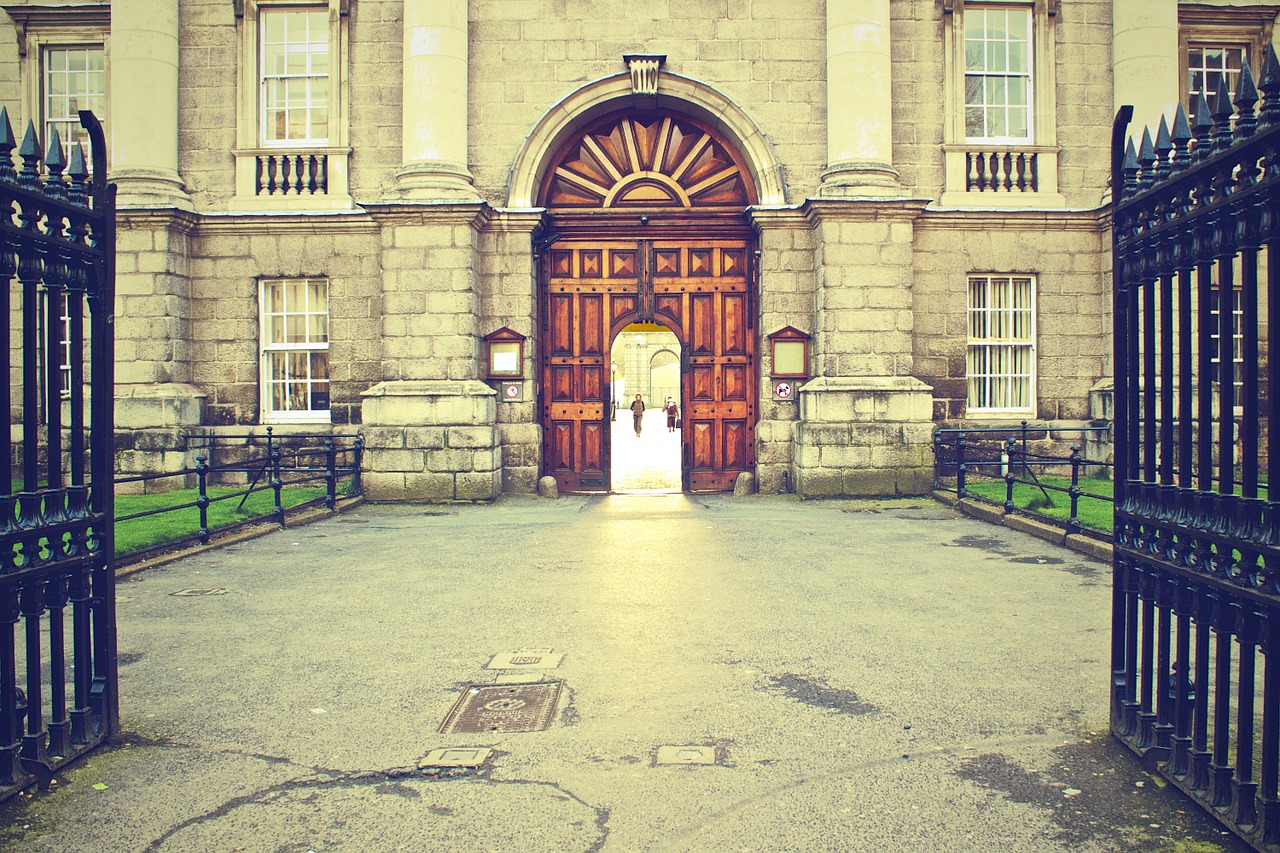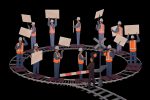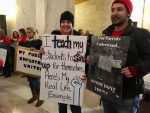College orientation prepared me in many ways, but it never taught me what to do when faced with a picket line. Granted, neither the administration nor I thought that a picket line was something I would encounter. And yet, during the last week of classes, the graduate students at my school marched, chanted, took up signs and banged garbage cans at the entrances of some of the most well-trafficked buildings on campus.
The administration decided not to cancel classes, and so professors had to decide for themselves what they wanted to do. Some professors moved classes off-campus or decided to meet in the evenings after the strike had stopped for the day.
Others continued to teach, while acknowledging and making adjustments for the fact that some undergraduates wouldn’t show up to class. Other professors refused to capitulate and continued teaching important material that would be on the next week’s final exams. Some classes still held midterms or early finals in picketed buildings.
Graduate students are unionizing and striking at many universities across the country for several reasons. Over the last few decades, graduate students have faced increased tuition, higher costs of living, increasing loan debt and a poor job market, as well as the ever-present problem of discriminatory behavior or harassment in their workplaces.
Many graduate students have sought to form unions to counteract these problems and bargain for increased wages and benefits. For graduate students at public universities, state laws determine whether or not they are employees and have bargaining rights. Graduate students at private universities, on the other hand, have a few options. They can attempt legal recognition from the National Labor Relations Board or try to get the university to recognize them voluntarily, like Harvard University did in 2018.
Many universities, including my own, oppose graduate student unions for rather vague reasons. University of Chicago provost Daniel Diermeier said in a university-wide email that the school would not recognize the graduate student union because it would interfere with the mentor relationship between graduate students and professors. He also claimed that unionization would not solve the problems the graduate students are facing and that unionization would undermine the current efforts by the university administration to address these problems.
Another common argument made by universities opposing graduate student unions is that graduate students are primarily students. They argue that any education undergraduates receive from graduate students is just a byproduct of the teaching experience that the university provides graduate students with. Any undergrad who has ever been taught by a dedicated graduate student would say that this argument is laughable and frankly ridiculous.
But supporting graduate students comes at a cost to undergraduates, as I and many of my classmates found out during the last week of classes this school year. Graduate student strikes are a double-edged sword: the strikes can hurt other students just as much, if not more, than the administration the graduate students are targeting.
Undergrads at the University of Illinois at Chicago were greatly affected by the strike of the graduate students in March 2016. The university cancelled over 550 classes, and the strike lasted for three weeks, ending only a month before the end of the year. At Columbia University, the graduate students went on strike for a week in April 2018, leaving many undergrads stressed about cancelled classes and unavailable teachers before finals.
Similarly, the graduate students at the University of Chicago are attempting to force the school to recognize their union and negotiate with them, and to do so they formed a picket line. The general philosophy surrounding picket lines is that you should not cross them. Showing solidarity for the picketing workers and stopping business/revenue helps show the employers how problematic a strike is for them and that they have to negotiate in order to keep from going out of business.
When some people decide to work anyway, the costs of the strike for the employer are minimized, which undermines the workers and the strike. When a person crosses a picket line, whether they are a worker or someone who benefits from that work, they are called “scabs,” a derogatory term first used in the 18th century. Other negative terms to describe strikebreakers include “blackleg” or “knob stick.”
The undergraduate students at my school were, generally, supportive of the union and the picket line. Some undergrads instructed, in no uncertain terms, not to cross the picket line. I was told that if I absolutely had to cross, I should show solidarity through other ways. I was also given an abundance of information on how to join the strike.
On the other hand, several high-ranking figures in the university administration sent emails to all undergraduates and their parents, saying, also in no uncertain terms, that I was still supposed to attend class and that the striking graduate students could not legally prevent me from doing so. They also stationed several campus police officers near the picket lines.
Many undergrads just skipped class. Some picked up signs and joined the picket line. But a lot of students were torn between two options — to scab or to skip. Lots of classes were still being held in their normal times and locations, which meant that going to class meant crossing the picket line and, for many students, being called out and yelled at. However, skipping class meant missing tests, quizzes, and/or important material that would appear on final exams. It also meant disrespecting the picket line and the graduate students, many of whom were friends, teachers and mentors, or would be someday.
The problem became that students could not support the graduate students and still receive the education that they paid for. The strike, while it was attempting to force the university into recognizing the union, also forced undergraduate students into a situation where they had to make difficult decisions about their priorities and their education, all while the graduate students, the university administration, other undergrads and parents pulled them in several different directions.
















